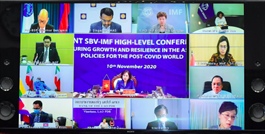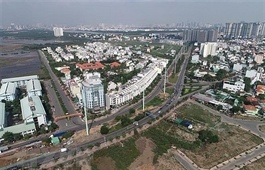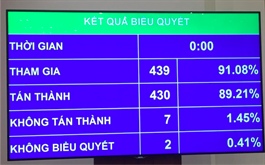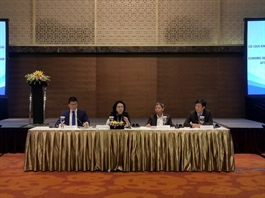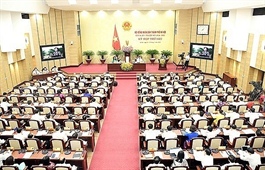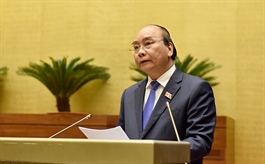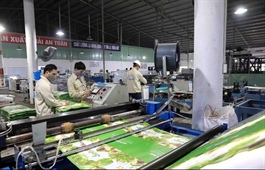Focus on efficiency for new incentives
Focus on efficiency for new incentives
A list of sectors that could benefit from special tax incentives in Vietnam would be utilised to grow enthusiasm for overseas investors and, as a result, help to contribute towards luring more high-quality foreign direct investment.
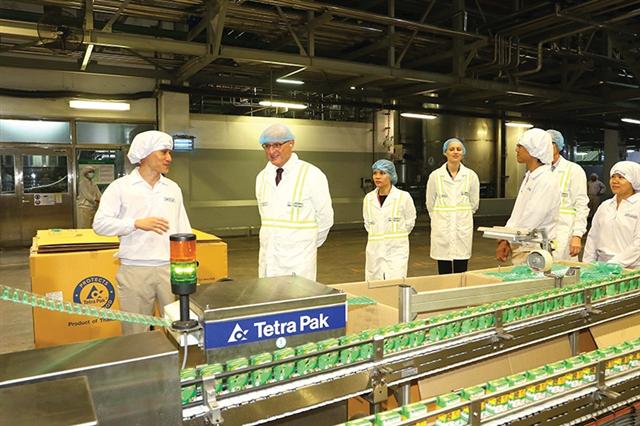
Enticing incentives would enable companies to bring more of their expertise, photo Le Toan
|
The Ministry of Planning and Investment (MPI) has proposed a list of sectors which could receive specific incentives, with the list itself being a part of a draft decree that regulates details and guides implementation of numerous contents of the Law on Investment 2020.
Before being published to collect comments, the list was reviewed and adjusted to be suitable with the direction of the law’s Clause 15.
According to the proposal from the MPI, specific incentives could be provided for the high-tech, IT, supporting, and agricultural industries, as well as building infrastructure projects, and projects in culture, sports, and even healthcare.
Notably, projects such as startups and venture capital funds aiming to develop high-tech ventures would be classed as a priority for such incentives. In agriculture, the government will utilise incentives for projects to plant forests, processing seafood, and developing fishery logistics and ship-building facilities.
For infrastructure and environmental protection, incentives would be applied for projects relating to concentrated waste collection and treatment, waste recycling, and reuse. In addition there could be good news for those funding the development of water and power plants, water supply, and drainage systems; bridges, roads, and railways; air, sea, and river ports; and other particularly important infrastructure works as decided by the prime minister.
There could also be specific sweeteners for sports training and coaching centres, drug addiction and smoking cessation centres, and other cultural or sporting facilities.
The MPI is currently still in the process of collecting opinions on the draft decree
The ministry’s fresh move has grasped the attention of numerous overseas investors, who said it is critical that all companies and investors encounter an equal, level, and predictable playing field as a solid foundation, not only to attract new funding, but also to maintain and grow investment that is already in the country.
“With these changes, international investors will bring their well-known technology in management and training to this country, allow more value-added production and less waste of material and resources, and support local companies in accelerating the modernisation process,” said Marko Walde, chief representative of the Delegation of German Industry and Commerce in Vietnam.
“For the long-term, we hope that German and European investors more generally will increase investments in Vietnam based on improved conditions here. We strongly believe that there will be many funds flowing into high-value projects,” he said.
According to John Gu, manager of the Korean Chamber of Commerce and Industry in South and Central Vietnam, Vietnam is required to promote investment in research and development (R&D) and foster a long-term technical manpower programme, and thus offering special incentives is understandable.
If Vietnamese companies and the government cooperate with South Korean counterparts in terms of high technology to develop an advanced technical manpower training programme, Gu said, it would be another good opportunity for economic development for both countries.
One project Gu took as an example is Samsung’s $220 million R&D centre, which enjoys preferential incentives relating to import tax and financial incentives in terms of electricity cost and land-use rights for the project.
The tech titan recently began construction of the largest R&D centre in Southeast Asia, in Hanoi’s Tay Ho district. The scheme is a strong example of the efforts by South Korean companies to develop R&D and raise the advanced technical manpower of Vietnam for the long term.







